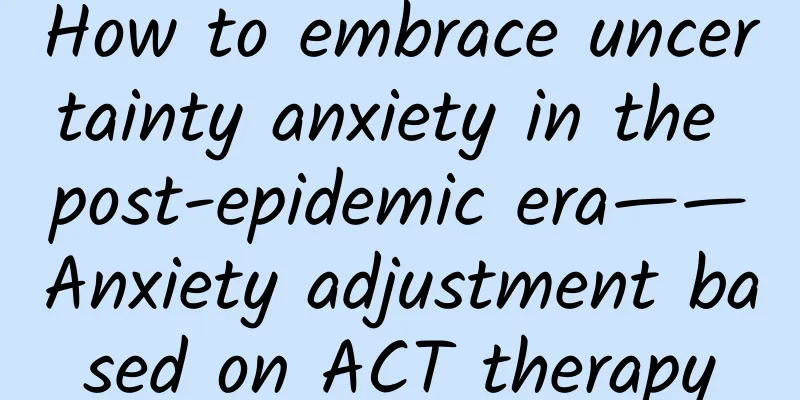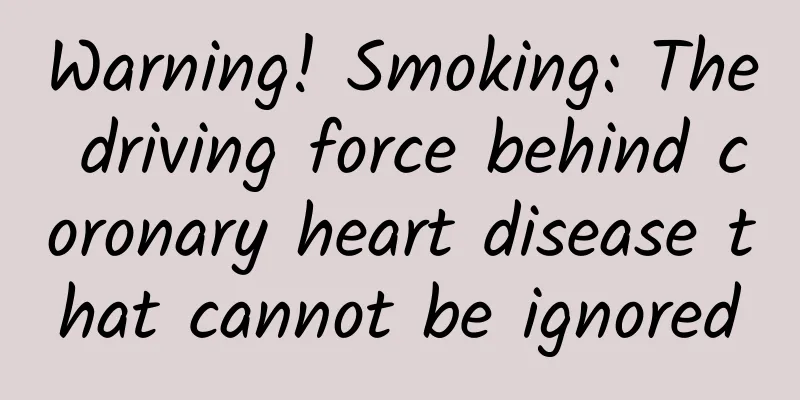How to embrace uncertainty anxiety in the post-epidemic era——Anxiety adjustment based on ACT therapy

|
The outbreak that began in early 2020 and continues to this day has changed the original life trajectories of too many people, and has brought too much "uncertainty" to the originally peaceful life. Many people have developed serious anxiety during this period of epidemic prevention and control. Recently, Dr. Zhang Wenhong said on Weibo that "close to zero cases will still be the norm for China's epidemic prevention. I hope that society will enter the new normal as soon as possible, so that the epidemic will fluctuate at a level close to zero cases and life will continue at a level close to normal." The World Health Organization has also warned that the coronavirus "may never disappear" and not try to predict how long the coronavirus will continue to spread, and called on the whole society to "make great efforts" to overcome it. It can be seen that the post-epidemic era does not mean the end of danger. On the contrary, we may coexist with the virus for a long time. Therefore, from now on, we must learn to get along with various "uncertainties", overcome uncertainty anxiety, and rethink the meaning of life and what kind of life we want in the "new normal". 1. What is uncertainty anxiety? Anxiety is a state of tension when people face possible threats and disappointments in the future. When individuals perceive and evaluate events and find that there are certain dangers that threaten them and they are unable to cope with them, they will have strong anxiety. Psychological research shows that an important cause of anxiety is the uncertainty in the situation. In the post-epidemic era, the small coronavirus continues to bring uncertain events to life, constantly breaking through the defenses of people's psychological immune system: panic caused by virus mutations, pressure caused by economic turmoil, depression caused by alienated interpersonal relationships, tension caused by losing control of reality, etc. These are all uncertainty anxieties in the post-epidemic era. Anxiety is a future-oriented emotion that often tends to mistake "uncertainty" for "certainty". There are cognitive biases such as exaggerating the negative impact of things and generalizing, which makes people feel uncomfortable. But on the other hand, it also reminds us to take proactive measures to deal with the threats that "uncertainty" may bring, and through neuroendocrine adjustments, mobilize the body's energy to prepare for threats. Normal anxiety is beneficial to health and improves adaptability, but if it is not properly controlled, it will seriously affect the individual's life. The post-epidemic era is an unpredictable era, and uncertainty anxiety is inevitable. Therefore, while we adapt to the new normal where we cannot pursue "zero cases", we must also welcome "uncertainty anxiety" with an open mind, coexist with it harmoniously, and achieve a positive transformation of our mentality. 2. What is ACT Therapy? Acceptance & Commitment Therapy (ACT) was founded by Dr. Hayes and others in the United States in the early 21st century. It emphasizes that life always has unavoidable pain. When life is used to avoid painful personal experiences, life may become lacking in value and meaning, and the painful emotions we want to avoid may increase instead of decrease. ACT encourages people to identify their avoidance patterns, accept any negative experiences, and practice things that are in line with their own value orientation. Scientific research shows that ACT is helpful for depression, anxiety, fear of speaking, chronic stress, drug abuse, mental disorders, eating disorders, advanced cancer, chronic pain, etc. 3. Uncertainty Anxiety Adjustment Based on ACT Therapy (I) A is acceptance. Psychology has a famous "Quicksand Survival Guide": Suppose you find someone standing in quicksand, and he shouts "Help, pull me out" while trying to climb out. You don't have any tools to use at this time, what should you do? If you understand the principle of quicksand, you will tell him to give up struggling, try to lie down flat, stretch his limbs to increase the contact area with the sand; if he keeps this posture, he may not sink, and he may even roll out of the quicksand like a log. But if you struggle desperately because of fear, the weight of your entire body will be pressed on your feet, the pressure will increase, and you will sink deeper and deeper in the quicksand. The "Quicksand Survival Guide" tells us: When facing a problem, don't make a meaningless struggle blindly, which will only make things worse. The similarity between quicksand and uncertainty anxiety is that people who are deeply in it want to escape from the sad and uncomfortable situation and hold on to a sense of security, but they will find that the result of struggling will only aggravate this dilemma. It is unlikely and unnecessary to eliminate the uncertainty anxiety brought by the virus in the post-epidemic era. What we need to do is to accept anxiety and learn to coexist with it. In ACT, acceptance is a proactive accommodation of the experience at this moment, that is, to make room for painful feelings and emotions, allow them to exist, not resist or escape them, observe them as objects without criticism, and giving up struggle is a new beginning. When we can accept the painful emotional experience brought by "uncertainty" with an open mind, we can continue to move forward and live a meaningful life. (II) C stands for commitment and choice. For most people with uncertainty anxiety, they always have some negative thoughts and are only willing to stay in the "comfort zone" to find a sense of security, find excuses for their escape behavior and deviate from their own values, which makes life meaningless. Therefore, if we want not to be dragged down by the "uncertainty" anxiety of the future, we need to be based in the present, focus closely on the present, find our own inner value, and make commitments and choices. ACT emphasizes that at this stage, we must first clarify the value of life at this moment. The value in ACT is not a goal set to escape temporary pain, but to find out what we care about most or what is most meaningful in terms of physical health, work and study, social relationships, etc., so that individuals can gain long-term active vitality. Try to ask yourself: "What can I do now to help improve my long-term life? What do I really want? What is important to me? What kind of person do I want to be?" Secondly, make commitments and choices under the guidance of values, find the meaning of life by setting goals, better cope with uncertain challenges in life, face real problems and plan future development, and reshape positive adaptive behavior patterns. (III) T stands for action. In cognitive therapy, simple cognitive adjustments cannot directly lead to behavioral changes. Once we have identified the true value of life, we must take proactive action. ACT emphasizes the connection between uncertain situations and anxiety symptoms, and seeks more flexible and effective ways to deal with "uncertainty anxiety" through proactive actions in actual situations. Actions require setting specific and achievable goals, and the goals are not to temporarily escape pain or please others, but to be consistent with the value direction we have committed to and chosen. In addition, timely evaluations should be made according to the living conditions, and adjustments should be made continuously based on feedback, step by step to practice more flexible behavior patterns, achieve a balance between acceptance and change, and make life rich and meaningful. In the post-epidemic era, instead of dwelling on the uncertain events in life, it is better to calm down and do the certain things that you can do, so as to enhance your sense of control over life and respond to changes with constancy. Accept the pain and anxiety brought by "uncertainty", get rid of the connection between "uncertainty" and the current self, no matter how the epidemic develops in the next stage, do what you should do now, and you can strive for the best results in the "uncertain" new normal life, so as to live in harmony with "uncertainty anxiety" and grow. |
Recommend
How to solve the symptoms of selenium deficiency in women?
The human body is composed of various trace eleme...
Green purulent vaginal discharge
The female vagina secretes a transparent or yello...
What is the reason for prolonged menstrual period?
The normal menstrual period for girls is only thr...
The story of the six bakery brothers!
With the gradual integration of Western diet, bre...
Does vitamin C supplementation have an anti-cancer effect? Experts have reached a consensus, but what are the results?
Most people know that supplementing with vitamin ...
Precautions after pregnancy
When female friends enter pregnancy, they should ...
YouGov: Millennials are the loneliest generation
199IT original compilation New data from YouGov f...
How to use female condoms
Small condoms can not only prevent unwanted pregn...
Can I do scraping if I have little menstrual flow?
Too little menstrual flow is actually a phenomeno...
When does postpartum hair loss begin?
Many women are worried about the problem of postp...
Symptoms of non-ovulatory follicles
There are often many problems with follicles, and...
Can I eat duck eggs during menstruation?
Speaking of duck eggs, I believe most people shou...
How to take care of yourself after a hysterectomy
Hysterectomy is a surgical procedure to remove th...
What kind of milk powder is good for the second trimester of pregnancy
The entire pregnancy period of a pregnant woman i...









